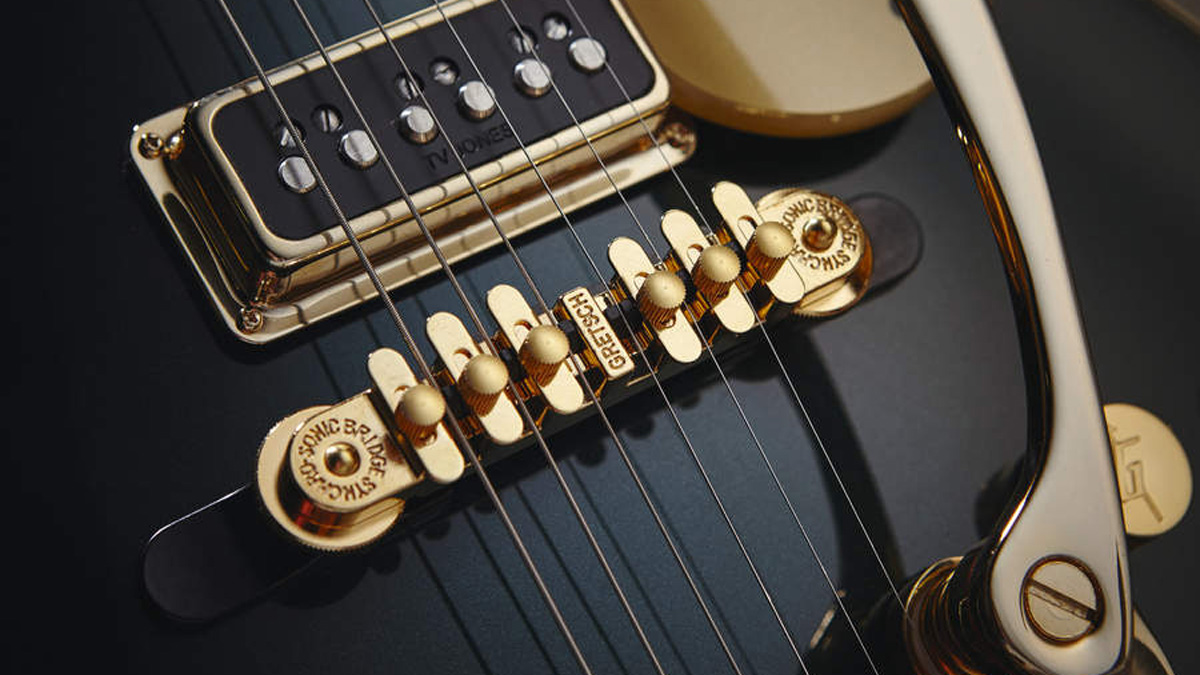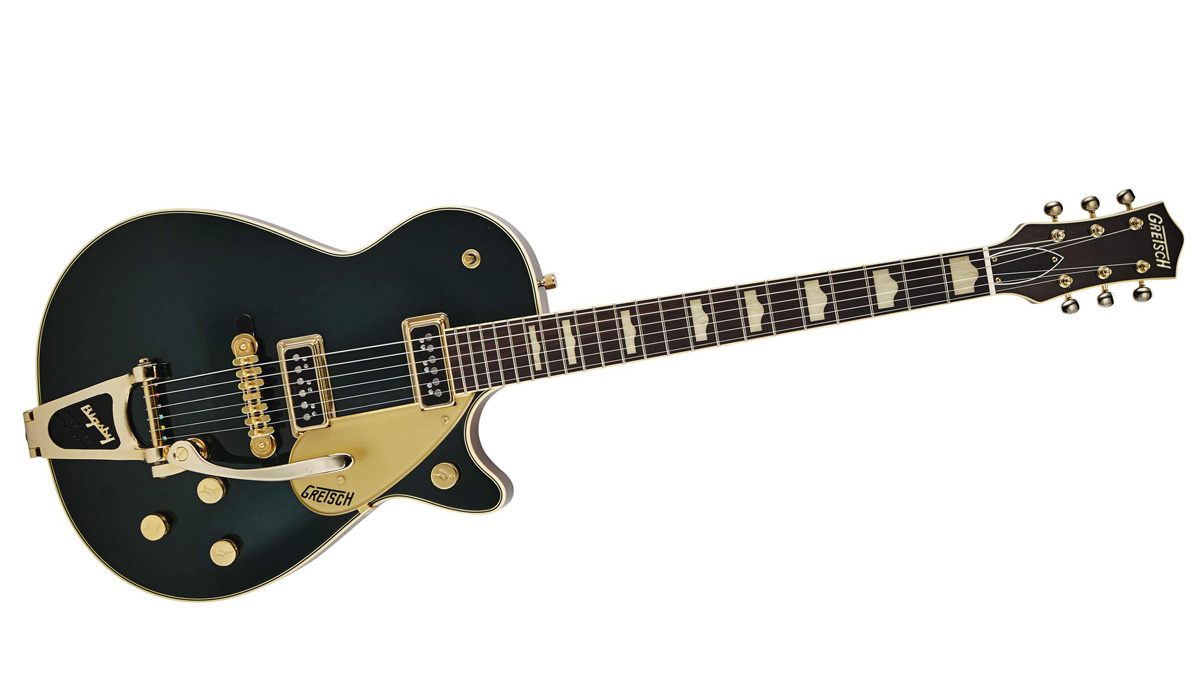MusicRadar Verdict
If you want a classic tone machine that’ll transport you back to a time when amplifier distortion was still regarded as a fault, the ’57 is a dream.
Pros
- +
Killer build-quality and tone.
- +
The Caddy Green makes a nice change from the classic black Jets.
Cons
- -
It would have been good to see a nitro finish in the ’57.
MusicRadar's got your back
Coming hot on the heels of our recently Gretsch G6134T-58 Vintage Select ’58 Penguin review, we have another model that rolls back the years.
The ’57 Duo Jet in Cadillac Green is described by Gretsch as a ‘Solidbody’. That’s not strictly true and it misleads many into assuming the Jet is a takeoff on another iconic single-cut guitar: the Gibson Les Paul, which pre-dated it by a year when it was launched in 1952.
The prosecution’s smoking gun might be the mahogany/maple construction of the Duo Jet’s single-cutaway body - all classic Les Paul, of course. The jury would be advised to dismiss the twin pickup layout and three-a-side tuner format as purely circumstantial. Gibson can’t claim ownership of that stuff...
The defence would justly counter that, beneath its skin, the Duo Jet is a very different beast to legendary Gibson president Ted McCarty’s first solidbody design. You see, the reason the ‘Solidbody’ description becomes evident the moment you pick up the ’58 Penguin and ’57 Duo Jet. Just like their illustrious ancestors, both guitars feature a chambered mahogany back paired with an arched laminated maple top.
When you consider that even a weight-relieved Les Paul won’t give you much change out of 10lbs, the Jet’s average of 8lbs makes for happier shoulders. The chambered construction has a huge effect on tone, too, and while there are some significant spec differences despite being reissues of consecutive model years, the ’57 Caddy Green Duo Jet and ’58 Penguin do have a lot in common.
The big news for Gretsch geeks is that this guitar features a period correct 2-inch (50.8mm) deep body - just like the G6128T-GH George Harrison Signature Duo Jet which has been around for a while.

The guitar comes spec’d with gold hardware, including partly occupied by a pair of single coil TV Jones T-Armond pickups each boasting a dedicated volume control, a shared master tone and master volume, and a three-way pickup selector switch.
The ’57 offers up the epically over-engineered Synchro-Sonic (aka the Melita). This is usually dumped by Gretsch-heads for the simpler bar bridge made by Gretsch and artisans like Tru-Arc. Personally we like the look and performance of the stock items. Some bemoan the fact they can’t palm mute with the Melita and Space Control but we managed just fine.
Sounds and feel
We were expecting this guitar’s neck to be a bit fatter given the spec list’s boast of a ‘U’ profile. You actually get closer to a chunky ‘C’ feel with a bit less beef than you’d find on, say, a Gibson R8 Les Paul reissue.
We were also taken aback by how the Vintage Select guitar beat our own 10-year-old ’57 Duo Jet 1.75-inch deep reissue in acoustic volume and twang. Plug in, crank the reverb, flick on the neck pickup and manhandle the Bigsby arm, and it sounds like someone just dropped your amp down a well. The chambered two-inch body gives you a semi-acoustic tone that’s bigger than, say, a Gibson ES-335. It’s almost like they managed to squeeze a big ol’ G6120 into those little bodies.
Like the DeArmond-made DynaSonic originals, the TV Jones T-Armond singlecoils on the ’57 Duo Jet are bright, lively and give their best through a clean or lightly driven amp. The middle position on the pickup switch is just wonderful for 50s country jazz and rockabilly picking. The neck pickup is warm but there’s still bags of definition. Again, it’s much happier with cleaner tones.
If you want a classic tone machine that’ll transport you back to a time when amplifier distortion was still regarded as a fault, the ’57 is a dream. In terms of presentation, this Duo Jet is as good as it gets. The fit and finish are flawless; the playability is perfect. Aside from the fact you don’t get a nitro finish, the ointment remains fly-free in every other regard.
“A synthesizer that is both easy to use and fun to play whilst maintaining a decent degree of programming depth and flexibility”: PWM Mantis review
“I feel like that song had everything we needed to come back with”: Bring Me The Horizon’s Lee Malia on Shadow Moses, its riff and the secrets behind its tone, and why it was the right anthem at the right time
“I said, ‘Are we sure we can write a song about death?’”: The story of Mike + The Mechanics' classic No.1 The Living Years










